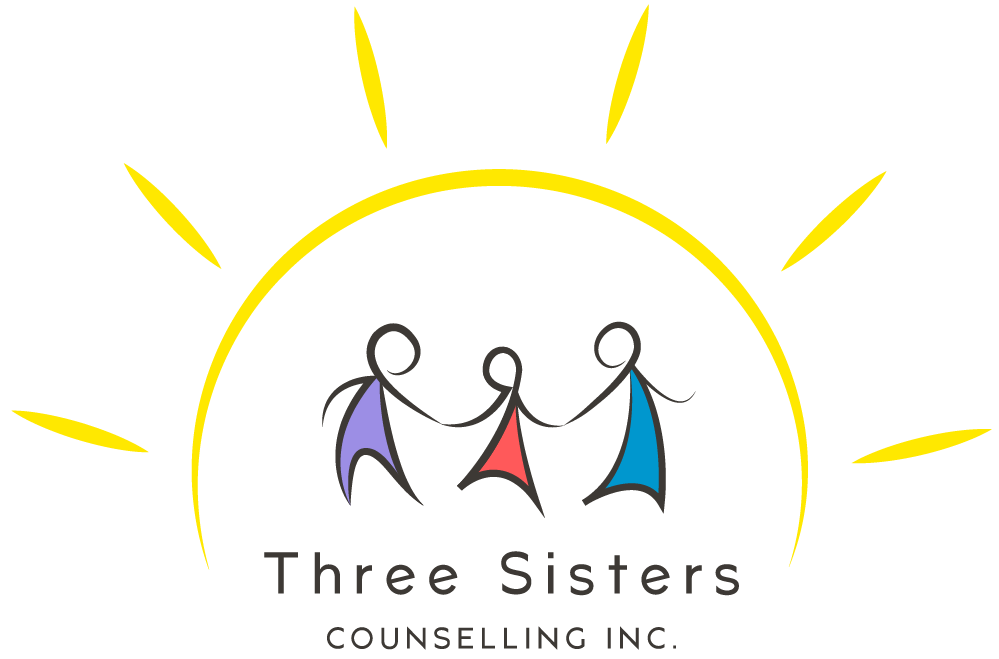Methodologies
Three Sisters Counselling Inc.
As a full-service counselling practice with multiple practitioners in two cities, we offer a variety of therapeutic methods to our clients. These include, but are not limited to the following:
Cognitive Behavioral Therapy (CBT)
Cognitive Behavioral Therapy is a method of psychotherapy directed toward teaching clients skills to modify dysfunctional thinking and behaviour. CBT works under the assumption that the way in which an individual perceives a situation is more closely related to their reaction than the situation itself.
We use this top-down psychotherapeutic intervention to teach clients to learn to re-frame their perceptions, be mindful of the impact of automatic thoughts, and challenge distorted cognitions. These skills allow the client to employ strategies to change destructive patterns of behaviour.
Dialectical Behavior Therapy (DBT)
Specifically focuses on providing clients with skills in four specific areas; Mindfulness, Distress Tolerance, Emotional Regulation, and Interpersonal Effectiveness. Developed by Marsha Lineman, PhD, this therapy was originally created to treat Borderline Personality Disorder. It is now widely used to successfully treat depression, Eating Disorders, PTSD, Substance Abuse, and the emotional effects of Acquired Brain Injury.
DBT works by teaching the client to balance opposites. Using this therapy, our practitioners work with the individual to find ways to hold two opposite perspectives simultaneously. This allows the client to avoid all-or-nothing styles of thinking and promotes BOTH acceptance AND change.
There are four ways in which DBT works to provide clients with these skills;
- Mindfulness techniques are used to improve an individual’s ability to accept and be present in the current moment.
- Distress Tolerance works to teach clients to increase their ability to tolerate negative emotions
- Emotional Regulation allows the client to learn strategies to manage and alter intense emotions.
- Interpersonal Effectiveness teaches the client techniques which allow them to learn to communicate with others in a way that maintains self-respect, is assertive, and strengthens relationships.
- Gottman Method
- ACT therapy
- Satir Family Therapy
- Tapping
- Narrative therapy
- Adlerian Therapy
- Internal Family Systems
Solution-Focused Brief Therapy (SFBT)
Unlike traditional forms for therapy that use past experience and pathology to analyze problems, SFBT works on the assumption that all individuals are at least somewhat motivated to find solutions to their problems. The foundation of this therapeutic methodology rests in the belief that WHY we are doing things matters less than HOW we can do things differently.
This therapeutic intervention strives to meet the client where they ARE, thereby concentrating on finding solutions in the present time. This therapy can be used independently or in conjunction with other therapies to help the client effectively manage the present while focusing on the future.
Our therapists find this therapy useful in treating family dysfunction, domestic abuse, addiction, and relationship problems.
EMDR (Eye Movement Desensitization and Reprocessing)
EMDR is a psychotherapy technique originally developed by Francine Shapiro. It works by identifying root causes of psychopathology in the form of previously stored disturbing past memories. The process includes identifying negative core beliefs and their association with disturbing past memories. EMDR can alleviate symptoms of PTSD (Post-Traumatic Stress Disorder) by helping the client process the disturbing memories, reduce the lingering effects of past traumatic experiences, and develop adaptive coping mechanisms.
Our practitioners use EMDR to treat front-line healthcare workers (Police, Fire, Ambulance, Nurses, Respiratory Therapists, and Physicians). Trained by Roy Kiessling who is an EMDRIA approved Senior Trainer for the developer of EMDR, Francine Shapiro.
Art and Play Therapy
Children are more inclined to express themselves visually and physically rather than verbally. Both Art Therapy and Play Therapy are commonly used in Pediatric Psychotherapy to treat a variety of issues including, but not limited to anxiety, anger, developmental delay, trauma, and ADHD.
Art therapy has proven to be extremely helpful for helping Frontline workers process daily trauma they experience as part of their jobs.
These therapeutic methodologies allow the child to communicate feelings they might be otherwise unable to express. The help the child develop their ability to self-express, improve their self-awareness, and foster the development of problem-solving skills.
In terms of learning, the child who engages in Art or Play therapy becomes comfortable experiencing and expressing emotion. They learn to associate their feelings with behaviours, and observe how different behaviours produce different results.
Through these practices they learn to become more responsible for their own behaviour and develop new and creative solutions for problems.
